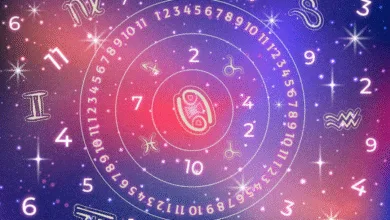The Rise of Reality TV: Why We Love Watching Real Lives on Screen

Discover why reality TV attracts millions worldwide, from authentic emotions and competition to celebrity culture, social media influence, and cultural impact.
reality TV, popular shows, unscripted television, entertainment trends, reality series, celebrity culture, streaming
Introduction
Reality TV has become one of the most influential and controversial genres in modern entertainment. From early experiments in the 1970s to today’s global streaming hits, millions tune in daily to watch real people navigate competitions, relationships, and daily life. But what makes reality TV so compelling — and why can’t we look away?
The Birth of Reality TV: A Brief History
While many trace reality TV back to shows like “An American Family” (1973), the genre exploded worldwide in the late 1990s and early 2000s. Programs like “Survivor” (2000), “Big Brother,” and “The Real World” combined raw human drama with structured formats, setting the foundation for modern reality television.
Authenticity: Real People, Real Emotions
One major appeal is the sense of authenticity. Audiences connect with unscripted reactions and emotions, finding these moments more relatable than scripted shows. Viewers see themselves in contestants’ triumphs, failures, and vulnerable moments.
Drama and Competition: Fuel for Engagement
Competitive reality shows keep audiences hooked week after week. From cooking shows like “MasterChef” to survival shows like “Naked and Afraid,” the format blends personal stories with high stakes, creating tension and emotional investment.
Celebrity Reality Shows: Blurring Fame and Reality
“Keeping Up with the Kardashians” and similar series turned private lives into public entertainment. These shows didn’t just document celebrities — they created them. Reality TV blurred the line between fame and everyday life, giving rise to influencer culture.
Cultural Impact: More Than Just Entertainment
Reality TV influences language, fashion trends, and even social issues. After “Queer Eye,” conversations about masculinity and acceptance gained mainstream attention. Shows like “RuPaul’s Drag Race” brought LGBTQ+ topics to millions worldwide.
The Business Side: Low Cost, High Return
Producing reality TV is cheaper than scripted drama: fewer actors, smaller crews, and often no expensive special effects. Yet ratings can rival or surpass scripted shows, making it a favorite for networks and streaming platforms.
The Role of Streaming: A New Era
Netflix, Hulu, and Amazon Prime have transformed reality TV further. Global hits like “The Circle,” “Too Hot to Handle,” and “Love Is Blind” prove that unscripted shows can dominate streaming charts, attract young viewers, and spark viral discussions online.
The Social Media Factor
Social media amplified reality TV’s reach. Fans discuss episodes in real time, create memes, and follow contestants’ personal accounts, turning participants into influencers overnight. Viral moments spread faster and keep shows trending.
Criticism: Is Reality TV Good for Society?
Critics argue reality TV promotes toxic behavior, superficial values, and scripted “drama” disguised as real. Some shows have faced backlash for manipulating narratives in editing. Despite criticism, viewer numbers remain strong.
Famous Reality Shows That Changed TV
-
Survivor – popularized competitive reality formats
-
Big Brother – introduced 24/7 live feeds
-
The Real World – focused on social issues among strangers
-
Keeping Up with the Kardashians – blended family life and celebrity branding
-
RuPaul’s Drag Race – celebrated LGBTQ+ art and culture
The Psychology of Watching Others
Experts suggest viewers enjoy reality TV because it satisfies curiosity, offers an emotional escape, and creates a sense of social comparison. Watching others succeed or fail can reinforce personal choices or inspire change.
The Future of Reality TV
-
Interactive shows where audiences decide outcomes
-
VR experiences placing viewers “inside” reality shows
-
Global crossovers featuring contestants from different countries
-
Shows focusing on niche interests and communities
FAQs (Extended)
Q: When did reality TV become popular worldwide?
A: In the late 1990s and early 2000s with hits like “Survivor” and “Big Brother.”
Q: Why do people become so attached to reality TV stars?
A: Relatable stories, social media interaction, and ongoing real-life updates build strong parasocial bonds.
Q: Is all reality TV completely unscripted?
A: While it’s unscripted, editing and production choices often shape narratives and highlight conflict.
Q: Will reality TV replace scripted shows?
A: No; both genres serve different purposes, but reality TV will keep evolving alongside scripted content.
Conclusion
Reality TV transformed modern entertainment by turning ordinary people into stars, mixing raw emotion with competition, and creating conversations that extend beyond the screen. Whether celebrated or criticized, it remains a mirror reflecting society’s changing tastes, values, and endless fascination with real human stories.



